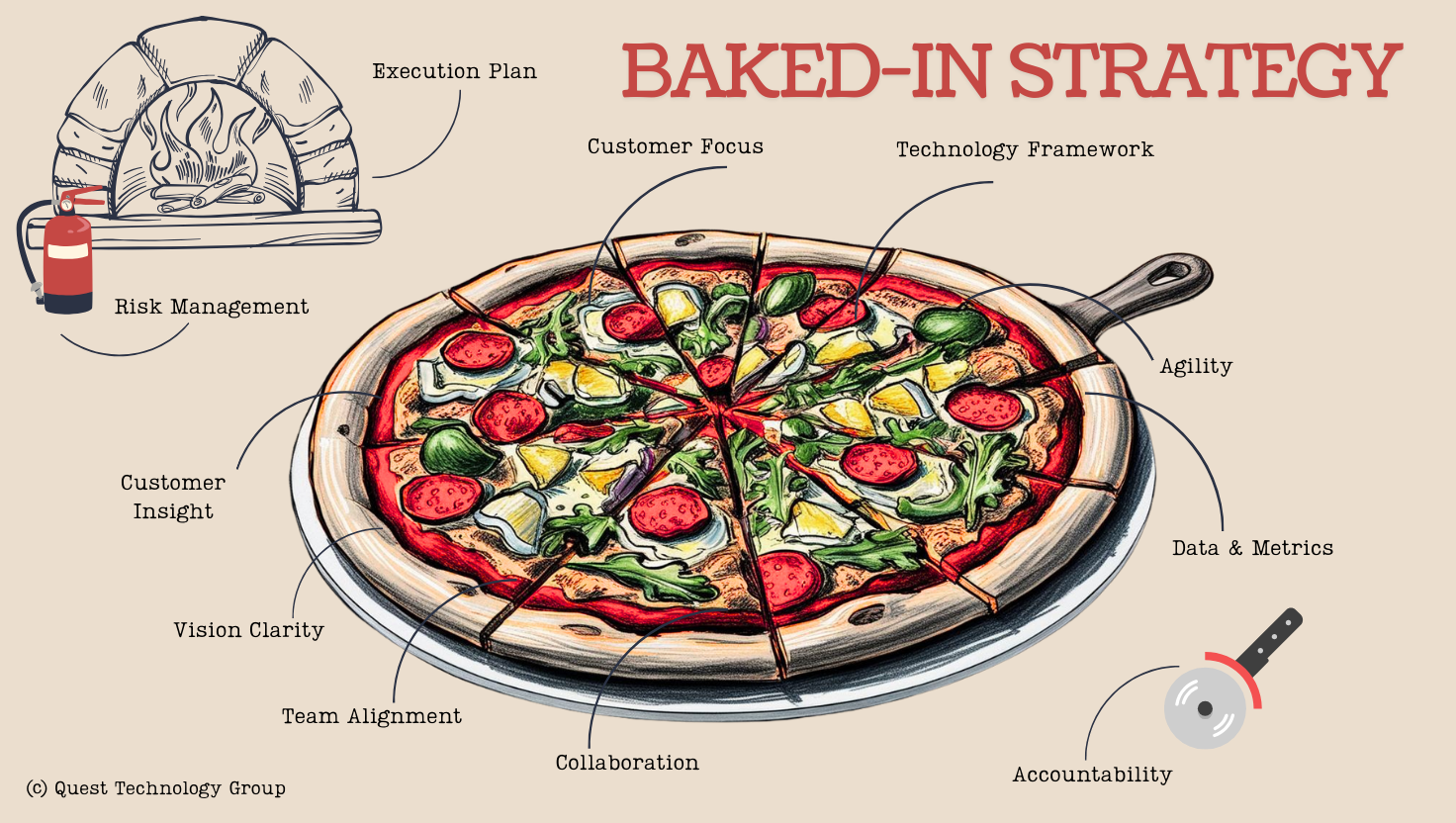What is a Fractional CIO?
It's the Strategic Technology Peace of Mind Partner Every Business Leader Deserves

Every Company Benefits from Experienced Tech Leadership
There was a time not so long ago when only big companies had a CIO. As technology has become an essential part of every company’s business foundation, experienced technology leadership can make all the difference in your company's growth and success.
How the Way We Work Everyday Has Changed
Several significant business and technology changes came together to reshape the way companies, employees, clients, and customers work.
Imagine not so long ago when everyone worked inside the company’s physical space. These walls created a tightly controlled barrier between internal activities and the outside world. Network access was relatively easy to manage, limiting who was allowed inside.
As bandwidth expanded to become more accessible and affordable, the internet brought those secure network boundaries down. People were no longer physically tethered to a desk in an office or cubicle within four secure walls. Networks expanded beyond the physical walls, relying on sophisticated access rules to replace walls.
Suddenly "we're in the cloud" granted easy access to anything anytime from anywhere. With this seemingly endless access came the inevitable security risks and data breaches.
All of these changes have placed a burden on companies to understand and quickly adopt very different technology frameworks. To continually anticipate and strategically plan for ongoing changes requires technology expertise companies do not have on staff. Even experienced technology folks without new cybersecurity expertise will find themselves unable to respond.
How Technology Creates New Opportunites for Growth
The good news is there are CIO leaders available for even the smallest companies. These business technology leaders deliver the right services, expertise, and dedication to meet your company’s unique needs.
Savvy company leaders make strategic decisions only after careful consideration and objective analysis . When they reach that pivotal decision to add a technology leader to their team, they often feel as if they’re staring down a bottomless black hole.
The questions many company leaders face are the same regardless of company size, time in business, and industry. Do any of these sound familiar to you?
The list goes on. Every one of these questions is what any strategic-minded company leader should ask.
Table of Contents
Uncomplicate your business technology strategy with a simple, actionable roadmap.

Start Planning Your Trip Today
What Is a CIO?
The company's chief information officer is the connector between business strategy and the technology that brings vision to reality. The CIO is a member of your company's executive leadership team, reporting directly to you, the CEO or business owner.
The CIO is the practical strategist who ensures you have the right technology to deliver the right products and services to the right clients at the right time.
What Does a CIO Do?
What is the Difference Between a CIO and a CTO?
These roles are often talked about interchangeably, but they are different.
The CIO is internally-focused. While they have deep technical experience like a CTO, they are responsible for the value the technology infrastructure delivers to the company and its customers.
The CTO is externally-focus. They are concerned with how technology works, and the products and services delivered.
In a structured organization, the CTO reports to the CIO.
Depending on the size and needs of the company, these roles are often combined.
What to Look for When Hiring Your CIO
We talked about many key leadership qualities your CIO will bring to the company in What Does a CIO Do. As you read through these, it quickly became clear that technology skills are only one component of an experienced CIO's toolkit. In fact, the technology aspect of the role is often the easiest for them to deliver.
If you're asking yourself, "What should I look for in my CIO?", these skills and experience are a reliable benchmark.
What is a Fractional CIO?
A fractional CIO is sometimes referred to as a part-time CIO. They provide all of the same skills, experience, and strategic leadership that a full-time CIO does in fewer regular hours.
The fractional approach is an attractive solution for companies that want technology leadership but aren't ready to make the full-time investment, do not need a full-time C-level member, or just want to build the relationship gradually. This is an ideal solution for small and mid-sized (SMB) companies.
Consider just a few of the many immediate benefits.
How is a CIO Different Than Your MSP?
Many SMBs rely on an outsourced managed services provider (MSP) for their day-to-day IT support. This vendor can be a valuable resource for your company, but it is important to understand exactly what they provide to your company.
MSPs might offer CIO services as a way to earn your business. In our experience, the majority of MSPs do not have the broad executive CIO skills and experience outlined in this ebook. If your MSP has offered CIO services to you, use this ebook as a benchmark to measure the actual skills and services provided.
When Should You Hire a CIO?
Building a company supported by a reliable, scalable technology framework is the mark of responsible leadership. That means forming an experienced business technology team member relationship as soon as you begin planning your company.
The right CIO will provide the guidance and specific skills your company needs at each phase of your growth.







